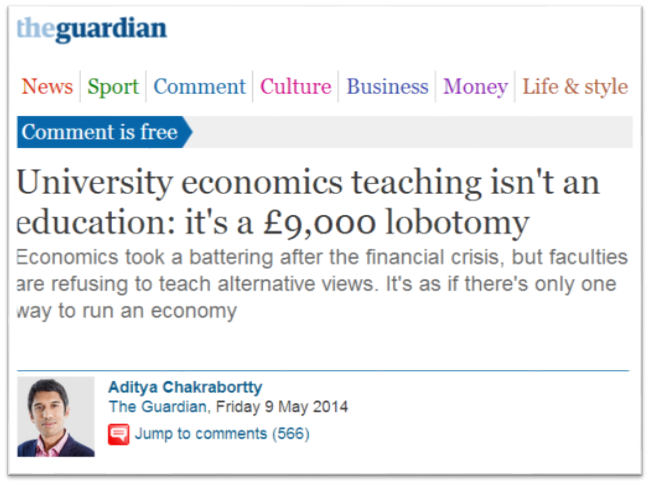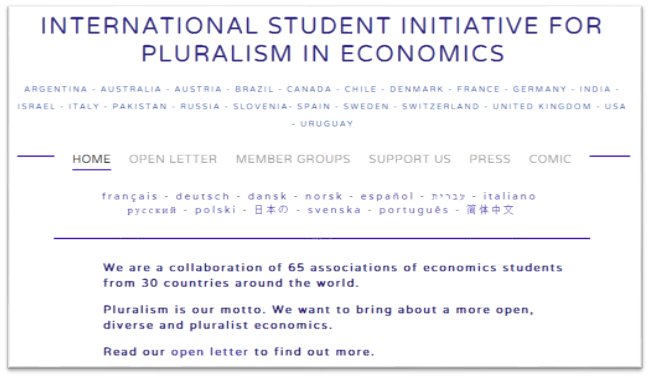If you know any UK secondary school student who is considering doing economics at University, please refer them to this blog post.
This Thursday, you’ll find out your A‑Level results. Whatever they are, if you are considering doing an economics degree, then I want you to consider doing it at Kingston University.
At first glance, that’s something you wouldn’t do if you had a choice, because Kingston rates well down the list in the Guardian League Table. Why choose Kingston—which is at the bottom of the Guardian’s list—if, for example, your A‑level results would get you into Oxford, which is at the top?
A clue as to why can be found in The Guardian itself—not in the League Table, but in a recent column by The Guardian’s senior economics commentator Aditya Chakrabortty, entitled “University economics teaching isn’t an education: it’s a £9,000 lobotomy”.
Aditya’s complaint was about how University economics courses had responded to the greatest economic event of our lifetimes: the economic crisis that began in 2007. At the time, economists were criticized by everyone up to and including The Queen, who famously asked ““If these things were so large, how come everyone missed them?”
As a new student of economics, you might think that after the crisis, most Universities would have substantially revised their economics courses to make them more relevant to actual economic events. But in general that hasn’t happened: according to Aditya, at some Universities, less attention is being paid to economic crises now than before the crisis happened:
The most significant economics event of our lifetime isn’t being taught in any depth at one of the largest economics faculties in the country.
This failure of academic economics to “fess up” has led to University students around the world lobbying for the reform of economics. Organisations like the “Post Crash Economics Society” and the “International Student Initiative For Pluralism in Economics” have been formed, calling for economics departments to teach a range of approaches to economics—not just so-called “mainstream economics”—and to seriously consider the crisis rather than ignoring it.
At Kingston, we already do both. We pride ourselves on teaching a range of approaches to economics, and we have specific modules—such as “Capitalism” and “Contemporary Issues in Economics” in which the crisis and theories about what caused it will be discussed in detail.
As the new Head of the School of Economics, Politics and History at Kingston University, and one of the few economists who did warn of the crisis before it happened, I can also guarantee that Kingston will get stronger on both these fronts over the next few years.
That’s not to say that Kingston is perfect: nothing is. But we start where it counts with a realistic, open-minded approach to economics that you won’t necessarily get from other Universities. So on Thursday, when you know your results, contact us at Kingston and check about doing your economics degree with us. Call the Kingston Clearance Line number 0844 842 9599 and speak to a member of our academic staff about doing economics at Kingston.




